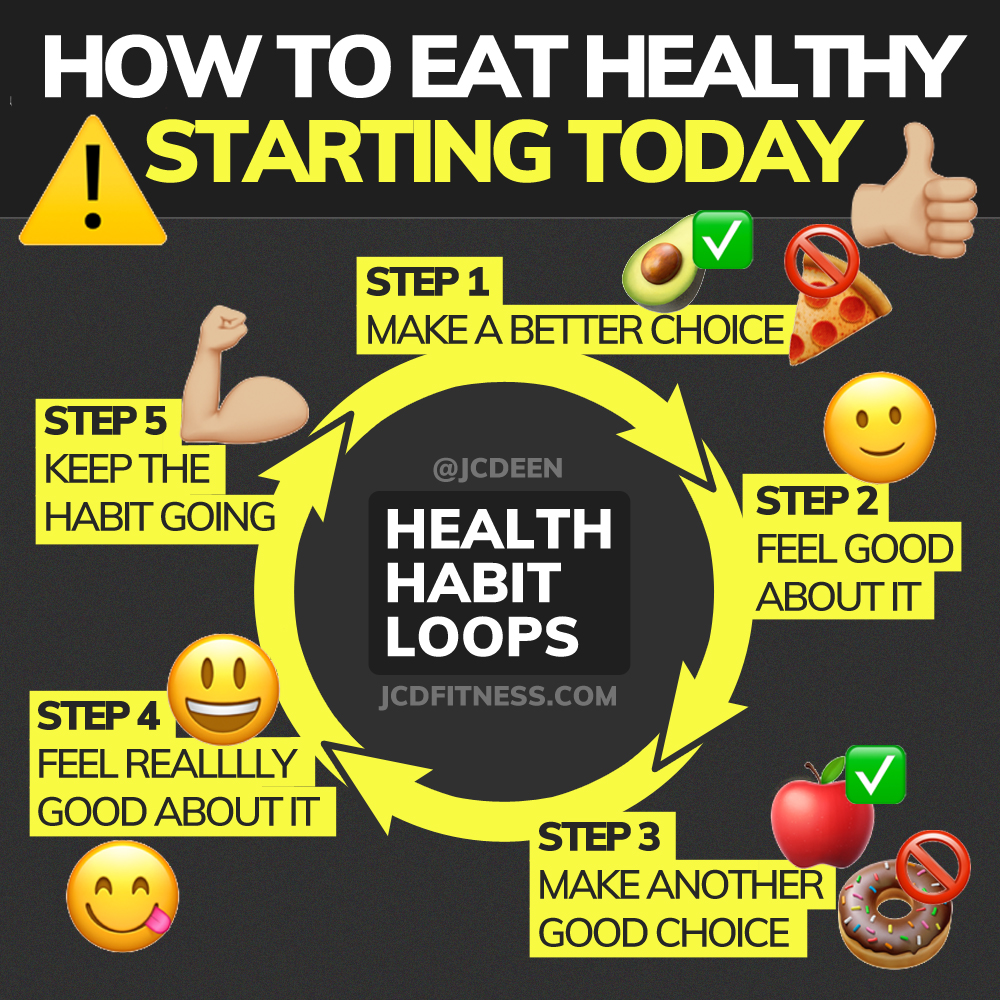
Our metabolism speeds up when temperatures fall below freezing and we begin to burn calories more quickly. Winters are the perfect time to lose weight and improve your health. A mere five percent loss of body weight can make a difference in lowering your blood pressure, cholesterol, or prevent you from getting diabetes. You can also set a goal, such as running a 5K in the spring or summer.
For winter weight loss, diet and exercise are essential.
It can be hard to lose weight and exercise in cold weather. With negative windchill, the holidays and family obligations, people may reach for comfort foods. It's possible to keep your weight at the same level with good planning and a healthy diet.

Cold weather is good for your metabolism
Studies have shown that exposure to cold temperatures can increase the rate of metabolism. This is because cold temperatures stimulate the production and use of brown fat. Brown fat helps to burn calories while also producing heat. Exposure to cold weather should not be dangerous and should not pose a risk to your health.
Paneer is a good choice for weight loss in winters
Paneer is a popular dairy product in India, similar to soft cheese, which is often used in many culinary dishes. It is made from milk coagulated using heat and acid. It removes most of the milk fat. It is made from casein combined with denatured protein whey proteins, salt and lactose. It is marble-white in colour and has a sweet, nutty taste. It can be made using different types of milk, resulting in a wide range of quality and flavor.
Meditation
Meditation is a great way to lose weight, especially in the winter months. Meditation can help you to focus on the right things such as eating healthier and exercising more. Meditation can help you stay motivated and stick to your new routine. You will notice improvement if meditation is done regularly. Plus, you'll feel better, so you're more likely to keep it up.
Drink lots of water
Drinking water is vital during winter. The cold weather can lead to skin dryness and dehydration. The thirst response to cold temperatures is also decreased, making it essential that you stay hydrated. Due to increased energy use, heavier clothing, and more urine, cold temperatures cause the body's fluid loss to be greater than in warmer weather. This can lead to dehydration which can lead to headaches, dizziness, fatigue, and other problems like dizziness.

Sugary foods are best avoided
Our bodies face unique challenges during winter months. It is important to keep our feet and legs warm, not eat calorie-laden snacks, as well as get out of our beds and couches to go for exercise. Instead, our focus should be on healthier foods that will fuel us throughout the season.
FAQ
Is it possible to eat fruits while intermittent fasting?
Fruits are great for your health. They contain vitamins, minerals, fiber and antioxidants. However, they contain sugar, which can cause blood glucose to rise. This can cause insulin resistance and weight gain. When you are trying to lose weight on an IF diet, make sure you eat low glycemic fruit such as apples, pears or berries.
What is the best activity for busy people?
Exercise at home is the best method to stay fit. It is not necessary to go to the gym or join any fitness club. You can perform simple exercises at your home without needing expensive equipment.
You just need to have a pair of dumbbells, a mat, a chair, and a timer.
The most important thing is ensuring you are consistent with your workouts. You may lose motivation if you skip a few days.
Three times per week is a good way to begin. You could do push-ups and pull-ups as well as squats, lunges or push-ups.
Once you have mastered the basic movements, it is possible to move on to other types such as running and jumping rope, skipping or yoga, Pilates, dance, swimming, weight lifting, tennis, golf, playing basketball, soccer, volleyball, badminton or squash.
When choosing an exercise program, remember to choose the ones that suit your lifestyle. Avoid exercises that demand too much energy if you work long hours.
If you're a night owl then it is better to exercise in the evening than in the morning.
Remember to listen to your body and stop when you feel tired.
How Much Weight Can You Lose in a Week?
The amount of weight that you can lose will depend on how high your body fat percentage is. The first thing to do is to calculate how much weight you want to lose and then find out what your BMI (Body Mass Index) is. Your BMI (Body Mass Index) tells you how much weight should be lost to reach your goal. If your BMI is 25 or greater, you're overweight. If your BMI falls below 30 you are considered obese.
For example, if 200 pounds is your BMI, it would be 28.7. To drop to a healthy range of weight, you will need to lose approximately 70 pounds. To see if you're overweight, visit www.healthyminds.com/bmi/.
Once you know your BMI, this formula will allow you to determine how many pounds per week you'll be able to lose.
(Your Goal Weight - Current Weight)/BMI * 7 Number Of Pounds Lost Per Week
You would need to do 2 weeks of exercise to lose 50 lbs in one month. This is equal to 56 days. Divide that by 7 pounds per week. That works out to 8.3 pounds lost per week.
You could also try this calculator from www.weightlosscalculator.net. This calculator gives you an estimate of how many calories are needed to lose 1 pound per day.
Why Exercise Is Important to Weight Loss?
The human body is an amazing machine. It was created to move. Whether we are walking, running, swimming, biking, lifting weights, playing sports, dancing, jumping rope, riding our bikes, or just standing still, moving our bodies helps us stay healthy.
Exercise burns calories and improves muscle tone. This will make you feel healthier both mentally and physically. It is common to hear people say that exercise is essential for weight loss. But what exactly is it?
-
Exercise improves metabolism. When you're active, your body will use energy. Moving makes your heart beat faster and blood flows more quickly to your muscles. Your lungs also absorb oxygen. All of these activities are energy-intensive. Exercising can help you burn calories because it increases your metabolic rate. Your body's energy consumption during physical activity is known as the amount of calories burned.
-
Exercise reduces appetite. Exercise can help you lose weight.
-
Strengthen your body through exercise Muscle tissue is more energetic than fat tissue. You will be able to lose weight if you have more muscle mass.
-
Endorphins are released when you exercise. Endorphins are hormones which make you happy. When you exercise, endorphins are released into your bloodstream. Endorphins block pain signals from reaching the brain, according to studies. This results in a feeling of wellbeing.
-
Exercise increases self-esteem. Regular exercise leads to higher self-esteem. It also leads to a healthier lifestyle.
Make small changes to lose weight. Add one of these tips today to your routine.
Would cardio exercises make me lose weight fast?
Cardio exercises are great at burning calories but don't help you lose weight. It all depends upon how much fat you have stored, and what type or exercise you do.
Cardio exercises may not work if you are obese.
You should combine them with dieting or other types exercise.
For example, running or jogging are great cardio exercises to help you lose weight quickly. These exercises burn more calories than any other form of exercise.
You should train resistance to gain muscles, not fat. Resistance training involves using free weights, machines, bands, elastic bands, etc.
Combine cardio exercises and resistance training to quickly lose weight.
For fast weight loss, combine resistance and cardio training.
Statistics
- A 12-week study in 20 women with obesity found that walking for 50–70 minutes 3 times per week reduced body fat and waist circumference by an average of 1.5% and 1.1 inches (2.8 cm), respectively (healthline.com)
- According to Harvard Health, it's estimated that a 155-pound (70-kg) person burns roughly 112 calories per 30 minutes of weight training (5). (healthline.com)
- One 6-month study showed that simply doing 11 minutes of strength-based exercises 3 times per week resulted in a 7.4% increase in metabolic rate, on average. (healthline.com)
- According to Harvard Health, it's estimated that a 155-pound (70-kg) person burns around 167 calories per 30 minutes of walking at a moderate pace of 4 mph (6.4 km/h) (5). (healthline.com)
External Links
How To
How to Intermittent Fasting
Intermittent fasting, a type of dieting that allows you to only eat one time per week, generally Monday through Friday. This is a way to cut down on calories while still getting enough nutrition. This is believed to help you burn more fat than if your meals were regular throughout the week.
The most common form IF is to reduce calories on specific days. This would mean that you skip breakfast each morning, and then eat whatever food you like throughout the day. It is possible to choose to have three smaller meals each day, rather than two large.
Many forms of intermittent fasting are available, such as alternate day fasting (5/2 fasts), 8/4 fasts and 16/8 fasts. Each type of intermittent fasting has its pros and cons. Alternate day fasting is the easiest way to start out because you don't have to make any major changes to your lifestyle. However, for some people it can be difficult to follow a strict diet, so they may prefer to explore other options.
Alternate-day fasting is a good option if you are looking to begin an intermittent fasting program. This will allow you gradually to transition into more extreme fasting habits without changing your lifestyle.